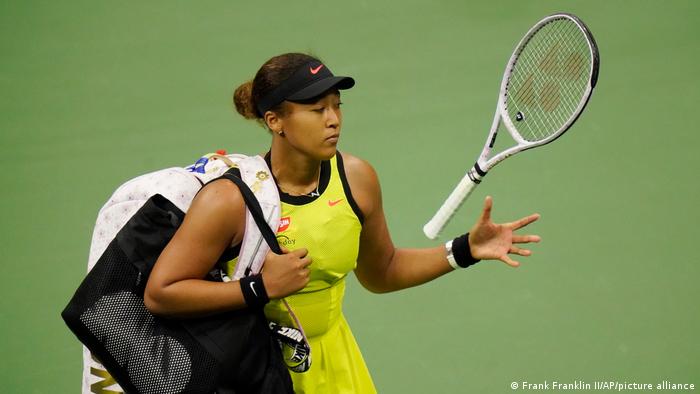Watching the US Open this month, fans were closely following the performance and well-being of Naomi Osaka. She took a much-needed break from the sport after facing harsh criticism for not participating in a mandatory press conference for the French Open. She shared that she was struggling from depression and believed that the high anxiety of press conferences and the pressure of playing at such a high level were pushing her mental health further than she was willing. On Saturday, after losing a close match with Leyla Fernandez from Canada, Osaka expressed that she doesn’t know when — or if — she will return to tennis. Pushing through tears, she wanted to share what her experience had been like:
“I feel like for me, recently, like when I win, I don’t feel happy. I feel more like a relief. And then when I lose, I feel very sad… I don’t think that’s normal.”
Osaka is not the only athlete who has made the choice this year to publicly share their mental health challenges and prioritize well-being over their sport. Most notably, perhaps, was Simone Biles who chose not to compete in the gymnastics all-around competition at the Tokyo Olympics. There have been many others, however, such as Noah Lyle, Simone Manuel, and Sha’Carri Richardson.
These moments of public self-advocacy come out of a moment in our society in which the taboos around mental health are beginning to fade. Young people, who face higher rates of anxiety and depression, are able to see that they are not alone. They therefore feel less isolated in their experience and more likely to speak up and seek help. Social media platforms — while also complicit in perpetuating mental illness — have made it possible for these brave youth to reach others at a grand scale, liberating their followers from shame and silence. TikTok in particular has become a hub of mental health advice from both everyday people’s experiences and mental health professionals. While already primed for a mental health makeover, COVID gave a final shove. Everyone living in this pandemic has experienced some form of mental and emotional distress. We can all now empathize a bit more with those of us who feel lonely, anxious, or depressed. Resources and awareness campaigns also became more vocal this year, realizing that they need to reach more people. As more people open up, try therapies, and find improvement, they then share their experiences with loved ones. And so the revolution snowballs.
While high-profile athletes — mostly young women of color — were fueled by this societal moment, they have taken the movement further and we are deeply impacted by their courage. Their acts of self-advocacy open more conversations. They hold a mirror to our own lives, help us examine our own health and priorities. They give us the language and precedent to approach employers and loved ones with our challenges. They model what it can look like to love ourselves, to leap forward by taking a step back.
Naomi Osaka, Simone Biles, and so many others, thank you for being the role models we need. We are eternally grateful.

